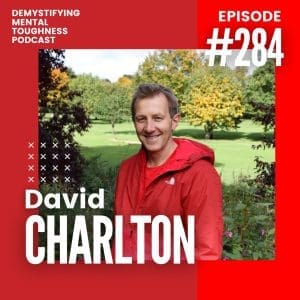18 August 2023

Helping You Gain A Mental Edge
How to Improve the Coach-Athlete Relationship?
Update on The Mental Edge from David
I hope that you’re well and that you have had a good week. As a valued subscriber and reader of The Mental Edge, I’d like to let you know about small change to the emails for the foreseeable future. Rather than receiving The Mental Edge to your email account on a Friday as has been the case for a long while now, starting on 02 September you’ll begin to receive these emails on a Saturday. You’ll also find another change, where rather than receiving “weekly” tips and ideas to boost your performance or enhance your well-being, you’ll find the emails come through on a “fortnightly” basis. This is due to some exciting changes in the business which you will hear more about in the very near future. Keep your eyes open and your ears peeled!
Coach-Athlete Relations
This is a topic which I’ve talked a lot about recently and again this week I’m keen to continue my ramblings, as it is such a big area and has a major impact on athlete and player performances, well-being and enjoyment. Research in Sports Psychology shows us that three key constructs of the coach-athlete relationship are closeness, commitment and complementarity (3Cs). What has also been found is that these 3Cs are associated with higher levels of performance and personal treatment, higher levels of team cohesion, lower levels of role ambiguity in team sports and more motivated athletes participating in team sports.
On the flip side, in most sports, due to the pressure of performing, heightened emotions and ineffective communication on the part of both athletes and coaches, poor relationships and conflict can occur.
The 3C’s model can be useful in identifying such problems to help decision makers in organisations, athletes and coaches to assess such relationship issues. Both coaches and athletes who recognise the need for closeness, commitment and complementarity can help themselves stay on track and focused in training and competitive events, highlighting the importance of improving your understanding of what effective relationships are, how to maintain them and how to move on and resolve conflicts that do crop up.
5 Tips to maintain coach-athlete relations (for both coaches and athletes)
- When conflict and disagreements do take place, placing your own ego to one side can be challenging however it is important to consider.
- Try to recognise and understand why the other person thinks, feels and behaves the way that they do.
- Attempt to think about potential solutions and not get to caught up in the event or problem.
- Seek to come to joint decisions on the way forward.
- Don’t distance yourself, spend time together, socialise and seek to find opportunities to build rapport.
5 More tips to maintain coach-athlete relations (for coaches)
- Introduce regular team-building activities to your sessions.
- Value your athlete’s individual development.
- Keep communication open with your athletes, clearly spelling out expectations and holding your athletes to account.
- Avoid punishments or criticisms that are directed towards your athlete’s characters or personalities.
- Treat your athletes as people first, and sports performers second, showing respect, care and trust.

BONUS TIP FOR SPORTS COACHES – WHY NOT LISTEN TO THE LATEST DEMYSTIFYING MENTAL TOUGHNESS PODCAST?
Supportive coaching is shown to be effective in having a positive influence on an athlete’s development, particularly when athletes are unsure of themselves, are less confident and lack mental toughness. You’ll find I touch on this in the latest Demystifying Mental Toughness Podcast which you may wish to check out.
VALUABLE PODCASTS TO HELP COACHES INCLUDE
Ep039: John Fletcher – How to Develop Fearless Athletes
Ep166: Mark Bennett MBE – How To Help Athletes and Coaches Reflect On Their Performances
Ep180: David Charlton – How To Work With Team Units To Improve Culture In Teams
Ep181:David Charlton – How to Improve Teamwork using a 4Cs Mental Toughness Approach
Ep182: Doug Strycharczyk – An Introduction to Mental Toughness and Psychological Safety #BITESIZE
VALUABLE RESOURCES TO HELP COACHES INCLUDE
Blog: Why You Should Recognise The Power of Your Words
Blog: Coach Development – Helping Athletes Overcome Fear of Failure
Blog: How Coaches Can Help Athletes Deal with Mistakes
Dr Kristin Neff’s Work on Compassion
Cath Bishop – Compassion can produce better performance – just look at the Lionesses
3 SPORT SPECIFIC RESOURCES FROM OUR SPORTS PSYCHOLOGY LIBRARY TO HELP YOU
3 WAYS TO LEARN MORE ABOUT OUR WORK:

Best Wishes
David Charlton
Online Sports Psychologist | Mental Performance Coach who supports many highly motivated athletes, young and old, developing their skills or who are already highly skilled so that they gain a mental edge and get the most from their talent across the globe from USA/Canada to Great Britain and Ireland to UAE, South Africa, Australia and New Zealand, using ONLINE Video Conferencing.
Managing Director – Inspiring Sporting Excellence
Host of Demystifying Mental Toughness Podcast
Founder of The Sports Psychology Hub
Author of The Mental Edge
With over a decades’ experience supporting athletes, coaches, parents and teams to transfer their skills from training to competitive situations, under pressure.
T: +44 7734 697769






